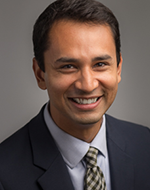Spring 2020 Issue |
|
Legislative Update
 |
Mark P. Hickman |
By James Pickral and Mark Hickman
Commonwealth Strategy Group
Sine Die and Veto Session
This year’s General Assembly Session was scheduled to end on Saturday, March 7, 2020, but the legislative calendar was extended by a day so legislators could conclude work on legislation and the budget conference report, the final package of amendments to the Governor’s proposed budget.
The General Assembly worked over its last weekend in often contentious negotiations on a number of major issues, such as redistricting, decriminalization of marijuana, legalizing casinos and sports betting, increasing the minimum wage, as well as many other bills. Legislators convened again on Thursday, March 12 for a final vote on the budget and judicial appointments.
Legislation that finally passed the General Assembly will go to the Governor, who can either sign, veto or amend bills. The General Assembly is scheduled to reconvene on April 22, 2020 for “veto session” to consider and vote on the Governor’s actions.
Medicine Priority Bills
On the medical front, balance billing, public health (vaccines), scope of practice, and Medicaid provider rates were at the top of the agenda.
Surprise Billing
In a major win for doctors and patients, acceptable legislation to end surprise/balance billing passed. The bills are based on a successful model in Washington state that includes a “commercially reasonable rate” guided by the Bureau of Insurance and All-Payer Claims Database, and a payment dispute and arbitration process.
Vaccines
Legislation that establishes the Virginia Department of Health (VDH) as the adjudicator of future required vaccines passed. VDH will add the four missing vaccines to the list of required vaccines: Hepatitis A, Meningitis, Rotavirus and HPV for males. VDH will be charged with maintaining regulations for required vaccines which conform to evidence-based routinely recommended vaccine for children. This legislation does not remove any exemptions or parental rights.
 Scope of Practice
Scope of Practice
Another win for the medical community was the defeat of legislation to allow for the licensure of naturopaths by the Board of Medicine. Other legislation introduced by Senator John Bell and Delegate Dawn Adams this year (SB 264 and HB 1059) would have provided prescriptive authority to CRNAs. The physician community opposed the original form of this bill, but there was overwhelming support amongst legislators. After working with the patrons and the Virginia Association of Nurse Anesthetists, we were able to successfully limit the bill to only apply as part of the periprocedural care of a patient. The bill also maintained physician supervision of CRNAs, so a supervising physician could simply not allow the CRNA to have prescriptive authority. Once the bill was amended, the physician community took a neutral stance. The legislation passed both houses and has already been signed into law by Governor Northam.
However, a bill (HB 1506-Sickles) that narrowly expands the prescriptive authority of pharmacists passed after much debate and engagement by the Medical Society of Virginia (MSV) and other stakeholders. The two original introduced bills would have allowed pharmacists to independently test, and prescribe and administer drugs for, many conditions. The legislation was immediately controversial, facing strong opposition from the medical community.
The two bills eventually took different paths. The House version became more limited and incremental, calling for a stakeholder work group to study and issue recommendations on whether pharmacist scope should be further expanded. The Senate version was more aggressive and would have called for the Board of Pharmacy, in collaboration with the Board of Medicine and Department of Health, to promulgate regulations to allow pharmacists to initiate treatment, dispense, and administer an expanded list of controlled substances.
Each bill passed its own chamber but when they crossed over to the other side, the Senate bill died in the House. However, the Senate then made the House version identical to the Senate bill, forcing it into conference committee with the goal of working out a compromise. MSV dropped its opposition to the House version but remained opposed to the Senate version. The final bill that reported from the conference committee is very close to the House version. We will monitor the work group closely and work with MSV on next steps to continue advocating for patient safety.
Pharmacy Benefit Managers
The General Assembly passed legislation this year, that has already been signed into law by the Governor, that will require licensure for Pharmacy Benefit Managers (PBMs) under the Bureau of Insurance. SB 251 (Edwards) and HB 1290 (Hodges) will regulate the PBMs and provide more oversight into their business practices.
Physician Wellness
Recognizing the importance of promoting physician wellness, MSV made it one of their priority issues during the 2020 Virginia General Assembly Session. We are pleased that their legislation passed unanimously and will next go to the Governor for his signature. HB 115, carried by Delegate Patrick Hope, and SB 120, carried by Senator George Barker, will help address the physician burnout crisis by allowing for the creation of a peer-to-peer wellness program amongst health care providers. Many physicians in Virginia fear seeking help because if a physician has disclosed personal mental health concerns their coworker or employer is legally required to report the physician to the Board of Medicine.
This new legislation will remove these roadblocks to instead allow for early intervention.
The wellness program will provide confidential support services where physicians can receive 24/7 counseling from peers and behavioral health professionals. The program is modeled after Lawyers Helping Lawyers. MSV worked with the Virginia Trial Lawyers Association to ensure the bill does not jeopardize the state’s existing disciplinary process, but rather allows physicians to receive the support they need, when they need it.
PSV Bills
PSV also actively worked on or closely monitored several pieces of priority legislation. Our three main bills this session are HB 348, carried by PSV 2019 Legislator of the Year Delegate Glenn Davis; SB 280, carried by Senator George Barker; and SB 330, carried by Senator Creigh Deeds.
HB 348 (Davis) Health Insurance; Authorization of Drug Prescribed by Psychiatrist
HB 348 as introduced would require that any provider contract between a carrier and a participating health care provider with prescriptive authority, or its contracting agent, provide that no prior authorization is required for any drug prescribed by a psychiatrist, if (i) the drug is a covered benefit, (ii) the prescription does not exceed the FDA-labeled dosages, and (iii) the drug is prescribed consistent with the regulations of the Board of Medicine.
The bill had a strange life. It first died in a House subcommittee after no member made a motion on the bill. However, because technically the bill was not acted upon and therefore was still in the subcommittee’s jurisdiction, the subcommittee chairman – who also signed on a co-patron – docketed the bill again the following week. This time, it was reported unanimously and rereferred to the Appropriations Committee because of a late, purported $4 million impact statement on the state employee insurance plan. The patron then worked with Appropriations staff to remove the fiscal impact because the Code section that the bill sought to amend exempts the state employee health plan. When the bill was heard in the assigned Appropriations subcommittee, the chairman stated that it was the General Assembly’s policy not to impose a new requirement on private plans that do not apply to state employees. The bill died 5-1, with two members present but not voting.
The sole opposition to the legislation was the Virginia Association of Health Plans, whose lobbyist made several claims about psychiatric drugs and offered to work with Del. Davis after session on trying to find a solution. We will formulate recommended next steps.
SB 280 Health Insurance; Mental Health Parity, Required Report
SB 280 codifies an existing requirement that the State Corporation Commission’s Bureau of Insurance (the Bureau) make an annual report regarding claims information for mental health and substance use disorder benefits. The bill adds information regarding network adequacy to such report and requires the Bureau to submit the report to the House Committee on Commerce and Labor and the Senate Committee on Commerce and Labor by September 1 of each year.
The bill directs the Joint Legislative Audit and Review Commission (JLARC) to conduct a third-party review of the Bureau's report. The bill requires JLARC, in conducting its review, to examine the information compiled by the Bureau from 2017 through 2020 and any other information it deems relevant and to report (i) its findings regarding mental health and substance abuse disorder benefits parity with medical and surgical benefits and access to mental health and substance abuse disorder services and (ii) its recommendations, if any, to the House Committee on Commerce and Labor, the Senate Committee on Commerce and Labor, and the Joint Subcommittee to Study Mental Health Services in the Commonwealth in the Twenty-First Century by December 1, 2020.
The bill passed the General Assembly unanimously.
Certificate of Public Need
COPN reform continues to be a priority for the physician community, but we had to reassess our strategy due to a lack of major support in the legislature despite Governor Northam’s engagement on the issue. Senator Deeds introduced SB 330 on behalf of the Governor to repeal COPN for psychiatric services, which PSV strongly supports.
Senator Petersen introduced SB 503 that was based on a compromise proposal discussed during the Governor’s COPN work group last year. This creates an expedited review process for specific projects and amends the charity care conditions to require certificate holders accept some type of mix of Medicaid, Medicare or Tricare patients.
Both bills died in close votes in Senate committee. Legislation that contains mostly process and administrative reforms, supported by the hospitals, passed.
Other Legislation
Senator Creigh Deeds carried several mental and behavioral health related bills that PSV supported. SB 738 deals with temporary detention for observation and treatment related to intoxication. After a lot of work by stakeholders, including the emergency physicians and the Sheriffs, a substitute (amended) version was introduced that would allow for a ‘medical temporary detention order’ to be issued after the emergency custody order, ending law enforcement custody, for 24 hours.
SB 739 as originally introduced would have added various information required to be reported to the acute psychiatric bed registry. Senator Deeds decided to instead have the bill require the Department of Behavioral Health and Developmental Services (DBHDS) to establish a work group to evaluate and make recommendations on how to improve the registry.
Both bills passed. The Governor offered a technical amendment to SB 738 and has signed SB 739.
Budget Amendments
Budget amendments we supported were included in the General Assembly’s final budget:
Item 295 #1c Behavioral Health Loan Repayment Program
Department of Health
This amendment provides $3,200,000 to establish the Behavioral Health Loan Repayment Program in order to increase the number of Virginia behavioral health practitioners by way of an educational loan repayment incentive that complements and coordinates with existing efforts to recruit and retain Virginia behavioral health practitioners. The program would allow for a variety of behavioral health practitioners to receive a student loan repayment award from the Commonwealth in exchange for providing service to Virginia communities that are otherwise underserved. Practitioners would receive loan repayment for up to 25 percent of student loan debt for each year of health care service provided to the Commonwealth. Maximum loan repayment amounts per year are dependent upon the type of behavioral health professional applying and shall not exceed the total student loan debt. Participating practitioners will have an initial two-year minimum participation obligation and may renew for a third and fourth year. This provides the practitioner with the opportunity to fully pay off their student loan debt while providing four years of service to the Commonwealth.
Item 313 #44c Residential Psychiatric Facility Rates
Department of Medical Assistance Services
This amendment provides $7.6 million from the general fund each year and a like amount of federal Medicaid matching funds to increase reimbursement to residential psychiatric facilities. The rates paid to these facilities, not unlike other institutional providers (hospitals, nursing facilities, etc.), have not increased since 2008 and have not been adjusted for inflation. These facilities serve only children in a clinically and medically-necessary active treatment program designed to provide necessary support and address mental health, behavioral, substance abuse, cognitive and training needs in order to prevent or minimize the need for more intensive outpatient treatment, per federal regulations. This amendment also strikes language that prohibits annual inflation adjustments.
Item 313 #10c DMAS Advisory Panel on Behavioral Health Redesign
Department of Medical Assistance Services
This amendment adds language requiring DMAS to convene an advisory panel of representatives from stakeholder organizations to review and advise on agency efforts to redesign behavioral health services, including specifics of implementation and a review of operational processes that affect sustainable business models. Language requires DMAS to report on its findings from this review by December 31, 2020.
Other budget amendments of interest include:
- Item 326 #1c. Eliminates funding in the introduced budget that supported the expansion of 56 beds at Catawba Hospital. The Department of Behavioral Health and Developmental Services made the decision to add 56 beds to the hospital during fiscal year 2020 to deal with census issues without consulting the General Assembly or proposing to add the beds through the normal budget process. This amendment does provide up to $5.0 million in special fund appropriation for costs related to transitioning patients from those beds.
- Item 320 #5c. Provides $7.5 million from the general fund each year to fund various pilot programs in the Commonwealth to help address census pressures on state psychiatric hospitals.
- Item 321 #3c. Provides $150,000 each year from the general fund to provide for the transportation costs of patients discharged from state hospitals that were admitted under a TDO. Oftentimes individuals under a TDO are transported to a state facility that is hours away from the individual's home location and therefore upon discharge may have difficulty getting transportation back to their home location.
- Item 313 #35c. Directs the Department of Medical Assistance Services to continue working with the Department of Behavioral Health and Developmental Services to complete the actions necessary to qualify to file an 1115 waiver application for Serious Mental Illness and/or Serious Emotional Disturbance. The department shall then develop such a waiver application that shall be consistent with the Addiction and Recovery Treatment Services waiver program.
- Item 313 #32c. Requires the Department of Medical Assistance Services to amend its contracts with managed care organization to ensure service authorizations for community mental health and rehabilitation services are handled in a timely and transparent manner.
YOUR NEWSLETTER IS NOW AVAILABLE ON YOUR SMARTPHONE AND TABLET!
JOIN PSV TODAY!
PLAN NOW!
PSV 2020
FALL MEETING
September 25-26, 2020
Hotel Roanoke
&
Conference Center
Curio Collection by Hilton
APA Find a Psychiatrist
Are you accepting new patients?
Opt into APA’s “Find A Psychiatrist” database. To view the functionality or opt-in,
CLICK HERE
FYI: A link for this option has been added to the PSV website. Select the “About” button and then “Find a Psychiatrist” from the drop down.





